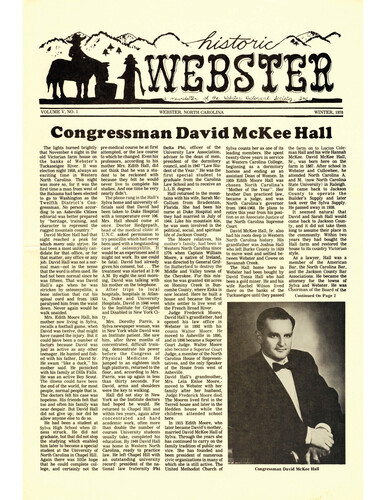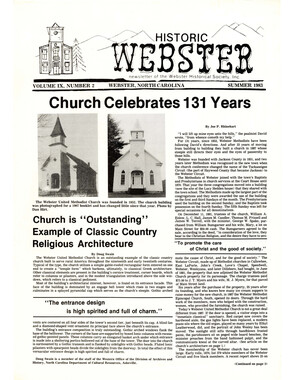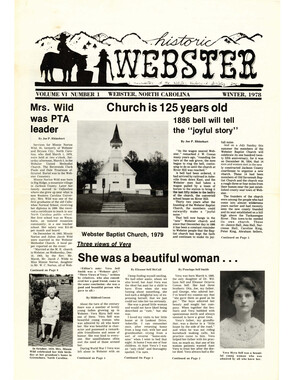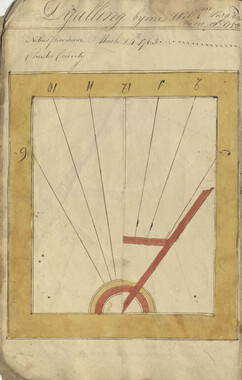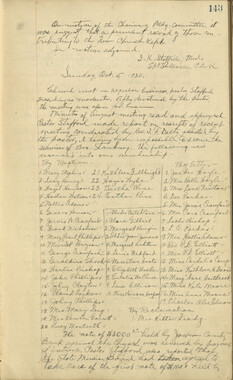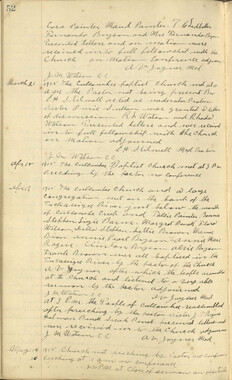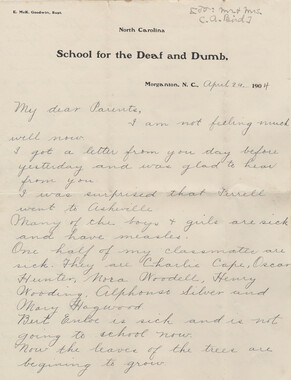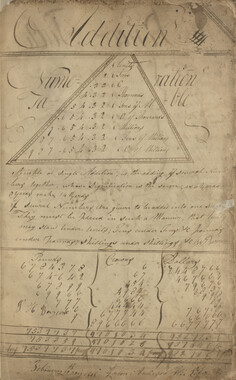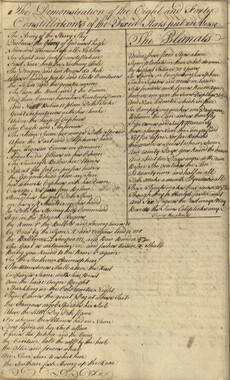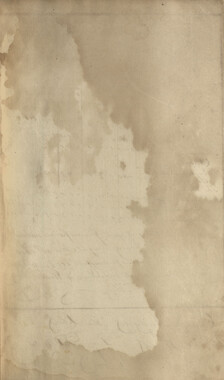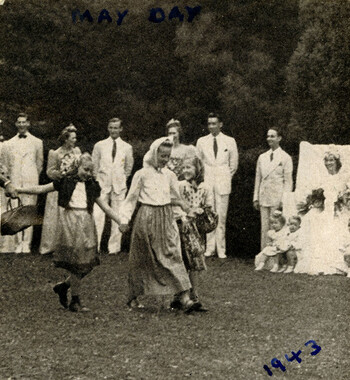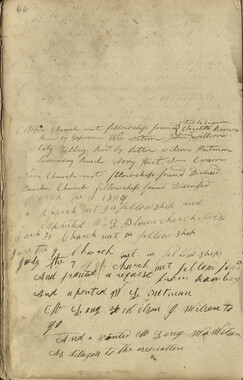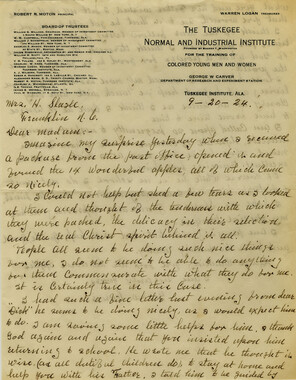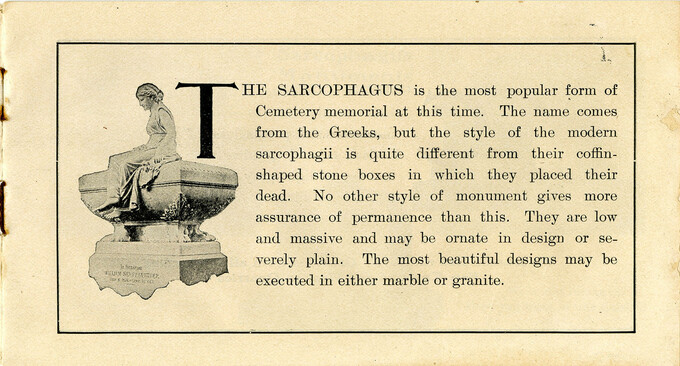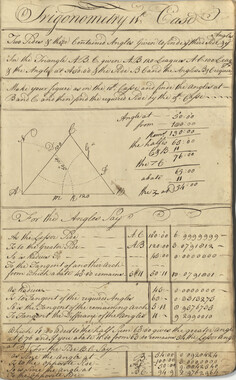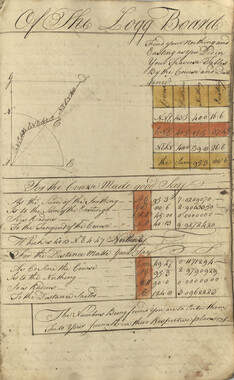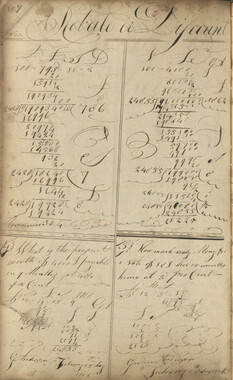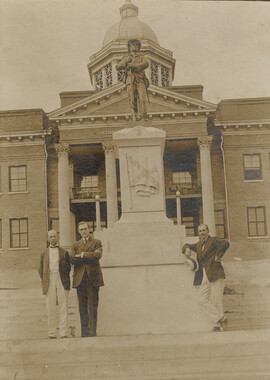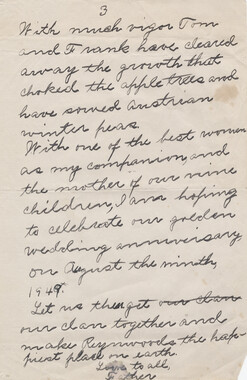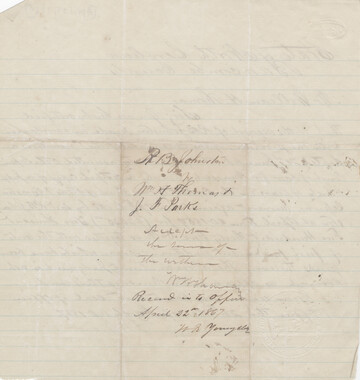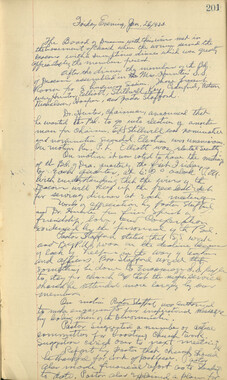Western Carolina University (20)
View all
- Canton Champion Fibre Company (2308)
- Cherokee Traditions (293)
- Civil War in Southern Appalachia (165)
- Craft Revival (1942)
- Great Smoky Mountains - A Park for America (2767)
- Highlights from Western Carolina University (430)
- Horace Kephart (941)
- Journeys Through Jackson (154)
- LGBTQIA+ Archive of Jackson County (26)
- Oral Histories of Western North Carolina (314)
- Picturing Appalachia (6772)
- Stories of Mountain Folk (413)
- Travel Western North Carolina (160)
- Western Carolina University Fine Art Museum Vitreograph Collection (129)
- Western Carolina University Herbarium (92)
- Western Carolina University: Making Memories (708)
- Western Carolina University Publications (2283)
- Western Carolina University Restricted Electronic Theses and Dissertations (146)
- Western North Carolina Regional Maps (71)
- World War II in Southern Appalachia (131)
University of North Carolina Asheville (6)
View all
- Carver, George Washington, 1864?-1943 (26)
- Masa, George, 1881-1933 (8)
- Niggli, Josephina, 1910-1983 (10)
- Whitman, Walt, 1819-1892 (10)
- Wilburn, Hiram Coleman, 1880-1967 (1)
- Allanstand Cottage Industries (0)
- Appalachian National Park Association (0)
- Bennett, Kelly, 1890-1974 (0)
- Berry, Walter (0)
- Brasstown Carvers (0)
- Cain, Doreyl Ammons (0)
- Cathey, Joseph, 1803-1874 (0)
- Champion Fibre Company (0)
- Champion Paper and Fibre Company (0)
- Cherokee Indian Fair Association (0)
- Cherokee Language Program (0)
- Crittenden, Lorraine (0)
- Crowe, Amanda (0)
- Edmonston, Thomas Benton, 1842-1907 (0)
- Ensley, A. L. (Abraham Lincoln), 1865-1948 (0)
- Fromer, Irving Rhodes, 1913-1994 (0)
- George Butz (BFS 1907) (0)
- Goodrich, Frances Louisa (0)
- Grant, George Alexander, 1891-1964 (0)
- Heard, Marian Gladys (0)
- Kephart, Calvin, 1883-1969 (0)
- Kephart, Horace, 1862-1931 (0)
- Kephart, Laura, 1862-1954 (0)
- Laney, Gideon Thomas, 1889-1976 (0)
- McElhinney, William Julian, 1896-1953 (0)
- North Carolina Park Commission (0)
- Osborne, Kezia Stradley (0)
- Owens, Samuel Robert, 1918-1995 (0)
- Penland Weavers and Potters (0)
- Rhodes, Judy (0)
- Roberts, Vivienne (0)
- Roth, Albert, 1890-1974 (0)
- Schenck, Carl Alwin, 1868-1955 (0)
- Sherrill's Photography Studio (0)
- Smith, Edward Clark (0)
- Southern Highland Handicraft Guild (0)
- Southern Highlanders, Inc. (0)
- Stalcup, Jesse Bryson (0)
- Stearns, I. K. (0)
- Thompson, James Edward, 1880-1976 (0)
- United States. Indian Arts and Crafts Board (0)
- USFS (0)
- Vance, Zebulon Baird, 1830-1894 (0)
- Weaver, Zebulon, 1872-1948 (0)
- Western Carolina College (0)
- Western Carolina Teachers College (0)
- Western Carolina University (0)
- Western Carolina University. Mountain Heritage Center (0)
- Williams, Isadora (0)
- 1700s (2)
- 1800s (13)
- 1820s (2)
- 1830s (2)
- 1840s (2)
- 1850s (4)
- 1860s (16)
- 1870s (9)
- 1880s (29)
- 1890s (9)
- 1900s (20)
- 1910s (23)
- 1920s (36)
- 1930s (38)
- 1940s (35)
- 1950s (46)
- 1960s (8)
- 1970s (27)
- 1980s (16)
- 1990s (1)
- 2000s (8)
- 1600s (0)
- 1810s (0)
- 2010s (0)
- 2020s (0)
- Appalachian Region, Southern (5)
- Buncombe County (N.C.) (10)
- Cherokee County (N.C.) (8)
- Graham County (N.C.) (11)
- Haywood County (N.C.) (9)
- Jackson County (N.C.) (151)
- Macon County (N.C.) (32)
- Madison County (N.C.) (1)
- McDowell County (N.C.) (2)
- Swain County (N.C.) (6)
- Asheville (N.C.) (0)
- Avery County (N.C.) (0)
- Blount County (Tenn.) (0)
- Clay County (N.C.) (0)
- Great Smoky Mountains National Park (N.C. and Tenn.) (0)
- Henderson County (N.C.) (0)
- Knox County (Tenn.) (0)
- Knoxville (Tenn.) (0)
- Lake Santeetlah (N.C.) (0)
- Mitchell County (N.C.) (0)
- Polk County (N.C.) (0)
- Qualla Boundary (0)
- Rutherford County (N.C.) (0)
- Transylvania County (N.C.) (0)
- Watauga County (N.C.) (0)
- Waynesville (N.C.) (0)
- Yancey County (N.C.) (0)
- Artifacts (object Genre) (3)
- Cards (information Artifacts) (2)
- Clippings (information Artifacts) (4)
- Drawings (visual Works) (1)
- Envelopes (23)
- Fiction (general Genre) (1)
- Letters (correspondence) (120)
- Manuscripts (documents) (11)
- Memorandums (9)
- Minutes (administrative Records) (2)
- Newsletters (39)
- Periodicals (39)
- Photographs (222)
- Portraits (76)
- Postcards (10)
- Publications (documents) (7)
- Speeches (documents) (1)
- Tintypes (photographs) (1)
- Aerial Photographs (0)
- Aerial Views (0)
- Albums (books) (0)
- Articles (0)
- Bibliographies (0)
- Biography (general Genre) (0)
- Crafts (art Genres) (0)
- Depictions (visual Works) (0)
- Design Drawings (0)
- Facsimiles (reproductions) (0)
- Financial Records (0)
- Fliers (printed Matter) (0)
- Glass Plate Negatives (0)
- Guidebooks (0)
- Internegatives (0)
- Interviews (0)
- Land Surveys (0)
- Maps (documents) (0)
- Negatives (photographs) (0)
- Newspapers (0)
- Occupation Currency (0)
- Paintings (visual Works) (0)
- Pen And Ink Drawings (0)
- Personal Narratives (0)
- Plans (maps) (0)
- Poetry (0)
- Programs (documents) (0)
- Questionnaires (0)
- Scrapbooks (0)
- Sheet Music (0)
- Slides (photographs) (0)
- Songs (musical Compositions) (0)
- Sound Recordings (0)
- Specimens (0)
- Text Messages (0)
- Transcripts (0)
- Video Recordings (physical Artifacts) (0)
- Vitreographs (0)
- C.W. Slagle Collection (4)
- Sara Madison Collection (144)
- A.L. Ensley Collection (0)
- Appalachian Industrial School Records (0)
- Appalachian National Park Association Records (0)
- Axley-Meroney Collection (0)
- Bayard Wootten Photograph Collection (0)
- Bethel Rural Community Organization Collection (0)
- Blumer Collection (0)
- Canton Area Historical Museum (0)
- Carlos C. Campbell Collection (0)
- Cataloochee History Project (0)
- Cherokee Studies Collection (0)
- Daisy Dame Photograph Album (0)
- Daniel Boone VI Collection (0)
- Doris Ulmann Photograph Collection (0)
- Elizabeth H. Lasley Collection (0)
- Elizabeth Woolworth Szold Fleharty Collection (0)
- Frank Fry Collection (0)
- George Masa Collection (0)
- Gideon Laney Collection (0)
- Hazel Scarborough Collection (0)
- Hiram C. Wilburn Papers (0)
- Historic Photographs Collection (0)
- Horace Kephart Collection (0)
- Humbard Collection (0)
- Hunter and Weaver Families Collection (0)
- I. D. Blumenthal Collection (0)
- Isadora Williams Collection (0)
- Jesse Bryson Stalcup Collection (0)
- Jim Thompson Collection (0)
- John B. Battle Collection (0)
- John C. Campbell Folk School Records (0)
- John Parris Collection (0)
- Judaculla Rock project (0)
- Kelly Bennett Collection (0)
- Love Family Papers (0)
- Major Wiley Parris Civil War Letters (0)
- Map Collection (0)
- McFee-Misemer Civil War Letters (0)
- Mountain Heritage Center Collection (0)
- Norburn - Robertson - Thomson Families Collection (0)
- Pauline Hood Collection (0)
- Pre-Guild Collection (0)
- Qualla Arts and Crafts Mutual Collection (0)
- R.A. Romanes Collection (0)
- Rosser H. Taylor Collection (0)
- Samuel Robert Owens Collection (0)
- Sherrill Studio Photo Collection (0)
- Smoky Mountains Hiking Club Collection (0)
- Stories of Mountain Folk - Radio Programs (0)
- The Reporter, Western Carolina University (0)
- Venoy and Elizabeth Reed Collection (0)
- WCU Gender and Sexuality Oral History Project (0)
- WCU Mountain Heritage Center Oral Histories (0)
- WCU Oral History Collection - Mountain People, Mountain Lives (0)
- WCU Students Newspapers Collection (0)
- Western North Carolina Tomorrow Black Oral History Project (0)
- William Williams Stringfield Collection (0)
- Zebulon Weaver Collection (0)
- Church buildings (1)
- Dance (1)
- Education (13)
- Floods (3)
- Forced removal, 1813-1903 (1)
- World War, 1939-1945 (1)
- African Americans (0)
- Appalachian Trail (0)
- Artisans (0)
- Cherokee art (0)
- Cherokee artists -- North Carolina (0)
- Cherokee language (0)
- Cherokee pottery (0)
- Cherokee women (0)
- Civilian Conservation Corps (U.S.) (0)
- College student newspapers and periodicals (0)
- Dams (0)
- Folk music (0)
- Forest conservation (0)
- Forests and forestry (0)
- Gender nonconformity (0)
- Great Smoky Mountains National Park (N.C. and Tenn.) (0)
- Hunting (0)
- Landscape photography (0)
- Logging (0)
- Maps (0)
- Mines and mineral resources (0)
- North Carolina -- Maps (0)
- Paper industry (0)
- Postcards (0)
- Pottery (0)
- Railroad trains (0)
- Rural electrification -- North Carolina, Western (0)
- School integration -- Southern States (0)
- Segregation -- North Carolina, Western (0)
- Slavery (0)
- Sports (0)
- Storytelling (0)
- Waterfalls -- Great Smoky Mountains (N.C. and Tenn.) (0)
- Weaving -- Appalachian Region, Southern (0)
- Wood-carving -- Appalachian Region, Southern (0)
- StillImage (230)
- Text (200)
- MovingImage (0)
- Sound (0)
Historic Webster Vol. 5 No. 1
-
Historic Webster is a newsletter of the Webster Historical Society, Inc., created at the Society’s founding in 1974. The publication helped to serve the Society's mission of collecting and preserving the history of Webster, North Carolina. Webster, established in 1851, was the original county seat for Jackson County.
-
-
WEBSTER, NORTH CAROLINA WINTER, 1978 Congress10an David McKee Hall The lights burned brightly that November 4 night in the old Victorian farm house on the banks of Webster's Tuckaseigee River. It was election night 1958, always an exciting time in Western North Carolina. This night was more so, for it was the first time a man from west of the Balsams had been elected to go to Washington as the Twelfth District 's Congressman. No person according to an Asheville Citizen editorial was better prepared by "heritage, training, and character to represent the rugged mountain country." David McKee Hall had that night reached a peak for which many only strive. He had been a most unlikely candidate for that office, or for that matter, any office or any job. David Hall was not a normal man-not in the sense that the word is often used. He had not been normal since he was fifteen. That was David Hall's age when he was stricken by osteomyelitis, a bone infection that cut his spinal cord and from 1933 paralyzed him from the waist down. Never again would he walk unaided. Mrs. Edith Moore Hall, his mother now living in Sylva, recalls a football game, when David was twelve, that might have caused the injury. But it could have been a number of factors because David was just as active as any other teenager. He hunted and fished with his father, David Sr. He swam "like a duck," his mother said. He picnicked with his family at Dills Falls. He was an active Boy Scout. The illness could have been the end of the world, for most people, normal people that is. The doctors felt his case was hopeless. His friends felt that too and often his family was near despair. But David Hall did not give up; nor did he allow anyone else to do so. He had been a student at Sylva High School when illness struck. He did not graduate, but that did not stop the studying which enabled him later to become a special student at the University of North Carolina in Chapel Hill. Again there was little hope that he could complete college, and certainly not the pre-medical course he at first attempted, or the law course to which he changed. Even his professors, according to his mother Mrs. Edith Hall, did not think that he was a student to be reckoned with because they felt he would never live to complete his studies. And one time he very nearly didn't. The phone rang in the Hall 's Sylva home and university officials said that David had been taken to Duke Hospital with a temperature over 106. Mrs. Hall should come at once. Doctor Hedgepath, head of the medical clinic at U.N.C. asked permission to try penicillin which had never been used with a longstanding case of osteomyelitis. It would be an experiment and it might not work. Its use could be fatal. David had already given his consent, but ... The . treatment was started at 2:00 A.M. By eight the next morning, David was talking with his mother on the telephone. After trips to local hospitals, hospitals in Atlanta, Duke and University Hospitals, David in 1946 went to the Institute for Crippled and Disabled in New York City. Mrs. Dorothy Parris, a Sylva newspaper woman, was in New York while David was an Institute patient. She saw him, after three months of concentrated, difficult training, demonstrate his power before the Congress of Physical Medicine. He jumped to an eighteen inch high platform, returned to the floor, and, according to Mrs. Parris, was up again in less than thirty seconds. For David, arms and shoulders were the key to walking. Hall did not stay in New York as the Institute doctors had hoped he would. He returned to Chapel Hill and within two years, again after concent rated and hard academic work, often more than double the number of courses University students usually take, completed his education. By 1948 David Hall was home in Western North Carolina, ready to practice law. He left Chapel Hill with an outstanding university record : president of the national law fraterni ty Phi Delta Phi, officer of the University Law Association, adviser to the dean of men, president of the dormitory council, and in 1947 "Law Student of the Year." He was the first special student to graduate from the Carolina Law School and to receive an L.L.B. degree. Hall returned to the mountains with his wife, Sarah McCollum from Bradenton, Florida. She had been his nurse at Duke Hospital and they had married in July of 1944. Like his mountain kin, he was soon involved in the political, social, and spiritual life of Jackson County. The Moore relatives, his mother 's family, had been in 'Western North Carolina since 1776 when Captain William Moore, a native of Ireland, was directed by General Griffin Rutherford to destroy the Middle and Valley towns of the Cherokee. For this mission he was granted 450 acres on Hominy Creek in Buncombe County, where Enka is now located. Here he built a house and became the first white settler to live west of the French Broad River. Judge Frederick Moore, David Hall's grandfather, had opened his law office in Webster in 1892 with his cousin Walter Moore. He moved to Asheville in 1895, and in 1898 became a Superior Court Judge. Walter Moore also became a Superior Court Judge, a member of the North Carolina House of Representatives, and the only Speaker of the House from west of Asheville. David Hall's grandmother, Mrs. Lela Enloe Moore,moved to Webster with her family after her husband, J udge Frederick Moore died. The Moores lived first in the Terrell house and later in the Hedden house while the children attended school here. In 1915 Edith Moore, who later became David's mother, married David McKee Hall of Sylva. Through the years she has continued to carry on the family tradition of public service. She has founded and been president of numerous civic organizations in many of which she is still active. The United Methodist Church of Sylva counts her as one of its leading members. She spent twenty-three years in service at Western Carolina College, beginning as a dormitory hostess and ending as an assistant Dean of Women. In 1959 Edith Moore Hall was chosen North Carolina 's "Mother of the Year". Her brother Dan practiced law, became a judge, and was North Carolina's governor from 1964-1968. He plans to retire this year from his position as an Associate Justice of the North Carolina ·supreme Court. David McKee Hall, Sr. also had his roots deep in Western North Carolina history. His grandfather was Joshua Hall who left Burke County in 1829 to move west and settled between Webster and Cowee on Savannah Creek. The Hall home here in Webster had been bought by David Tonsa Hall who had been a gold miner. He and his wife Rachel Wilson lived there on the banks of the Tuckaseigee until they passed\ the farm on to Lucius Coleman Hall and his wife Hannah McKee. David McKee Hall, Sr., was born here on the farm in 1887. After school in Webster and Cullowhee, he attended North Carolina A. and M. (now North Carolina State University) in Raleigh. He came back to Jackson County to operate the Builder's Supply and later took over the Sylva Supply. He passed away in 1938. It seemed natural that David and Sarah Hall would come back to Jackson County, and it did not take them long to assume their place in the community. Within two years they had bought the Hall farm and restored the house to its country Victorian style. As a lawyer, Hall was a member of the American Bar, the North Carolina Bar, and the Jackson County Bar Associations. He became the attorney for the towns of Sylva and Webster. He was Chairman of the Board of the Continued On Page 2 Congressman David McKee Hall Page 2, HISTORIC WEBSTER, Winter 1978 David McKee Hall ••• Continued from page I Sylva Methodist Church. He was elected president of the County Chamber of Commerce, a worker to employ the handicapped, secretarytreasurer of the Jackson County Savings and Loan Association, a director of the United Fund, and Regional Fund chairman of the Red Cross. He became a member of the National Rivers and Harbors Congress. In politics, Hall was soon elected president of the county Young Democratic Club, a member of the executive committee of the North Carolina Young Democratic Club, and vice-chairman of the county Democratic Executive Committee. In 1955 David Hall was elected by the North Carolina Thirty-second Senatorial District, made up of Haywood, Henderson, Jackson, Polk, and Transylvania counties to go to Raleigh as a state senator. Because of his confinement to a wheel chair, it was imperative that he have physical assistance. And it was this kind of help that Ernest Burch continued to render. As Hall's personal aid in Webster and Sylva, he accompanied him to Raleigh. During the senate session he and his family lived in the capital in order that he be readily available, in many capacities, to Senator Hall. Burch was also of assistance to him in those early congressional days in Washington. During the early part of his term as North Carolina senator, Hall introduced a bill to reactivate the municipal government of the Town of Webster in Jackson County. The town had been incorporated in 1859, but after the county seat was moved to Sylva in 1913, Webster's charter had lapsed. In Hall's bill a mayor, Ernest Penland, Sr., and five aldermen: Lewis Cannon, Claude Cowan, Doug Davis, Goldman Monteith, and Joe Rhinehart were appointed to serve until their successors could be elected and qualified, North Carolina's Governor Luther H. Hodges appointed Hall to the State Board of Water Resources in 1956, but Hall did not complete his senatorial term. Two years later, in the May 31, 1958 Democratic primary, Congressman George Shuford, the incumbent representing the Twelfth District, was nominated for his third term. In this voting Shuford had defeated Waynesville industrialist Heinz Rollman and three other candidates. Rollman had come in second, behind Shuford by 19,000 votes, in a hard fought nomination. During the general election week, Mr. Shuford was admitted to an Asheville hospital. His entry was not announced, but when it became known, word went out the admission was only for 111inor surgery. The illness was much more serious, and Mr. Shuford was transferred to Bethesda Navy Hospital, near Washington, for treatment of paralysis. Shuford would not run in the November election against W. Harold Sams of Asheville. Shuford had won the nomination, but he would not be in the general election. Who would be the Democratic nominee? Heinz Rollman demanded the position. Buncombe and Henderson Counties, the population centers of the Twelfth District, wanted to control, as usual the nomination. It fell to the district executive committee of the Democratic party, two delegates from each of the district's ten counties, to pick the nominee. The committee, along with Hall's loyal and hardworking backers, met in the packed courtroom of the Swain County Courthouse in Bryson City on July 31. On that hot summer day it soon became evident that the only person who would get the nomination would be David Hall. David Hall, from Webster, west of Asheville, accepted the Democratic nomination to Congress. "I accept the nomination with a great deal of humility. I pledge to expand every effort toward victory this fall for all Democrats-in district, state, and nation, and I will work untiringly for not part, but all of the Twelfth District." Two days later the Asheville newspapers commented editorially that "many thousands of citizens . .. are mighty happy about the new situation. We consider this a thoroughly wholesome and desirable development- good for Western North Carolina and the Democratic Party. Mr. Hall possesses all the qualifications, in his fine mountain background and place of residence as well as in his splendid character and abilities, to represent Western North Carolina in Congress." "Not only does he know the needs and interests of his home county, but he is familiar with the desires and aspirations of the entire district . . .During the four decades of his life he has been steeped in a family tradition of public service, a heritage that has given impetus to his own desire to serve . . .In selecting a congressional nominee, the Democratic committee reached into a central county of the district and tapped a man who, by heritage, training, and character, is equipped to be an excellent representative of the Democracy of this rugged mountain country. He should be elected." David Hall wasted little time getting into the congressional campaign. His district was a large one-from the Black Mountains of Bun-combe to the Tennessee line, west of Murphy. Never once did he slow down. He had long been able to drive his car, and his message as he crisscrossd the hundreds of miles of this western district was unity, a forgetting of political jealousies, and a regional solidarity to promote "the best interest of all Western North Carolina." David Hall would represent the district with courage, intelligence, and devotion. "He must know his district intimately, its needs and aspirations. He must be well grounded in State and Na-district . . .and I trust that I can in my work merit the confidence you have placed in me." In early January, the Halls of Webster became the Halls of Washington. The family moved into an Arlington, Virginia house and the girls enrolled in school there. On January 7, the Hall family, consisting of David's wife Sarah, their daughters Anne, Allison, and Hannah,- his brother Robert of Asheville, his sisters, Mrs. Margaret Dowdle of Franklin, and Lela Moore Hall of Harnett County, and his mother, Mrs. The Hall Home In Webster tiona! Government. He must understand politics and be a good politician himself. He must be a sound party man-in this case a Democrat-because to get good results in Washington a congressman must function effectively as a member of his party's legislative team." David Hall would tell his listeners that he had never considered himself an invalid, even though he could not walk. "Never," he said, "never have I thought of myself as being other than normal. The fact that I was confined to a wheelchair at fifteen apparently didn't affect my abilities to earn or to participate in civic, church, and political affairs." The election in 1958 was held on November 4. The Asheville Citizen called Hall's triumphant defeat of Republican candidate Sams a "political anti-climax". By over 20,000 votes 52,609 to 31,524, Hall had won despite considerable Republican campaign activity. So the lights burned brightly at the Hall farm that November 4 night. Hall and his wife left the constantly ringing telephone to awaken their three daughters and give them the victory news. "Daddy, you beat him. I know you did," cried Anne. Then her sisters Allison and Hannah joined in the wild, happy celebration. Hall, in his acceptance speech pledged again to dedicate himself and his office to "true representation of all the people of this great David Hall of Sylva, along with other kin and close friends gathered in the gallery of the United States House of Representatives. The occasion was the swearing-in ceremony for the newly-elected representatives of the 86th Congress. The oath was administered by Speaker of the House Sam Rayburn of Texas. David Hall had asked for assignment to the House Interior Committee, one important to Western North Carolina because of the large public land holdings of the Federal Government. The Cherokee Indian Reservation is also under the Department of the Interior. What could have been farther from the land of Western North Carolina than the moon? Yet Congressman Hall was assigned to the new committee of Science and Astronautics. Americans and their government were just beginning to realize the importance of space. The Russians had developed Sputnik only a year before and the United States was feeling the pressure to compete. Congressman Overton Brooks, committee chairman, reminded the members that "we have no time to lose. . .The national security aspects of space vehicles should be stressed now. "Hall became the top ranking freshman member of the committee. Much of the work in Congress is done through the committee system. Here, small groups of members become knowledgeable about the committee topic. In the fall of 1959, Hall with other members of Space and Astronautics flew to Londonto attend the International Astronautical Federation. In London, Hall worked with other delegations for proper ground rules and effective regulation of international scientific associations. David Hall arrived in Washington in January 1959. He had just received his committee assignment and had just entered into the ways and workings of Congress. Early in the term he had been chosen treasurer of the Eighty-sixth Congressional Club composed of the sixtythree freshmen Democratic House members. Suddenly in February, Hall had to undergo surgery at Bethesda Naval Hospital for a kidney problem. A second operation followed in March. In November at St. Joseph's Hospital in Asheville physicians found a malignancy in the scar tissue. In New York's Sloan-Kettering Institute in December an operation to remove the cancerous growth was performed. Hall was returned to C. J. Harris Community Hospital in Sylva and died there, at age forty-()ne, January 29, 1960. Congressman Herbert C. Bonner of North Carolina's First District announced to the House of Representatives David Hall's death. "His life was carried on with determination" said Congressman Bonner. "He was dedicated to the welfare ... of the Government of the United States, and his own area of our State, the Twelfth District." Senator Sam J. Ervin, Jr. announced Hall's death to the Senate. "I have never known a more gallant spirit." Both Houses of Congress adjourned after a committee of members, twelve from the House and two from the Senate, were appointed to attend the funeral in Sylva's First Methodist Church on Sunday, January 31. Over 600 people, neighbors, old and political friends, and Washington dignitaries crowded the brick church that David Hall's father had helped build in 1917. "David had a strong will to live in a large world. He had drive, control, and discipline of his natural abilities. He had a desire to grow, to learn, to accomplish. "He had faith in himself, boundless energy, unceasing hope, a sense of duty and mission although he knew he was living on borrowed time." Hundreds of David Hall's friends followed the procession through the rain to the Webster Cemetery where he was buried near his father and grandfather, those early Carolina pioneers in whose footsteps he had followed. Beyond the hilltop cemetery, rising in tier after tier are the Continued On Page 4 Page 3, HISTORIC WEBSTER, Winter 1978 David McKee Hall (I9I8·I960) Just after he was sworn in as a member of Congress by Sam Rayburn. David with his family at the home in Webster-Mrs. Edith Hall, Hannah, Allison and Anne hall and wife Sarah . November 5, 1958. A conference with Senator John F. Kennedy. David at four . Eleven years old and mascot of Sylva Scout troop. David as a senior in high school. Page 4, HISTORIC WEBSTER, Winter 1978 Tom McClure Recalls Duties With Congressman Hall and His Washington I was Mr. Hall 's personal assistant in addition to being a member of his staff. I traveled with him always-to about everyfunction or meeting. Mr. Hall was a member of the House Science and Astronautics Committee. I attended all committee meetings with him and took care of all his affairs in that connection. This required a Top Secret Security clearance. taut; Jean Mauney Green of Murphy, secretary ; Tom McClure, Sylva, personal assistant; Sue Moreland of Asheville and Washington, secretary. Committees usually met during the morning hour and the House would go into session at noon. Following the morning committee meetings, Mr. Hall and I would return to the office for a brief period then go to the House floor around noon. I usually sat in the family gallery and when Mr. Hall ~tJ~L0\{1{~~ 1{~<>0~f(coi<, f'9lr<'~
u{ J -uiu <' Wr,·M'c .d,- .d'vl '~- ~ a. Jf~ j 16. t£"}<~"'-~ .f & .au,y.-~ · ~~y:.-4 for 'VC1.« aduf -~ fm•.< -'~ d,..t ..:~ ,u-<a -
